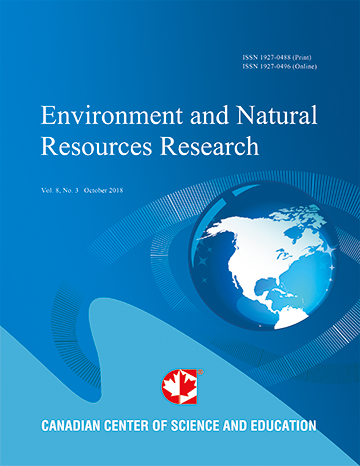Climate Change Policies and the Potential for Energy Efficiency in the Gulf Cooperation Council (GCC) Economy
- Mohammed Ansari
Abstract
Climate change is a problem that many municipalities in the world are facing today. Due to the fragile ecosystem, and harsh climates that are experienced by the Gulf Cooperation Council (GCC) countries, the region has become vulnerable to a wide variety of ecosystem and climate change issues. Aside from the climate affecting the area severely, its dependence on hydrocarbons, also makes it vulnerable to climate changes. There are climate change policies adopted by the GCC region for prosperous future and sustainability. These include, policies to affect impacts of energy and carbon intensities, response measures being adopted for climate change, the mitigation potentials of the region, along with the suitability of the markets to harness potentials.
This analysis focuses on utilizing Marginal Abatement Cost curves, along with econometric techniques that will assess the emissions of Green House Gases (GHGs), the potential for mitigation in the GCC region, and computable general equilibriums that invest the impacts of measures, exploring suitability of instruments that can help to harness the potential mitigation measures for the region. Main policy insights that can be concluded based on the analysis is the role that incentives play to help promote energy efficient mechanics, while reducing emissions of carbon emissions within the region, contributions made to climate policies for air quality, along with the roles that green tax reforms play to help improve the economics of welfare, while pursuing carbon policies for the domestic areas in the region.
Globally, there are a lot of energy efficiency policies. The GCC has been witnessing a phenomenal amount of growth when it comes to meeting the needs of domestic households. The region is facing extreme demographic pressure, and as a result has decided to accelerate energy intensive drives. The requirements that the GCC has to meet is causing trade-offs and challenging implications regarding allocation and development of hydrocarbon resources to adhere to domestic and export demands.
In conclusion, four issues that have arisen within the GCC in relations to climate change policies have been addressed in this paper. These issues include the rising amounts of energy and carbon intensities, the impacts that the response measures that are being implemented by developed countries have on developing countries, as well as the mitigation potentials that exist within the region, as a method to harness the potentials that are available. Energy efficiency is believed to be a primary candidate to deal with the challenges the GCC is facing. Detailed assessments regarding energy efficiency for the GCC economies is addressed, along with how these intensities relate to outside world economies.
This analysis focuses on utilizing Marginal Abatement Cost curves, along with econometric techniques that will assess the emissions of Green House Gases, the potential for mitigation in the GCC region, and Computable General Equilibriums that invest the impacts of measures, exploring suitability of instruments that can help to harness the potential mitigation measures for the region. Main policy insights that can be concluded based on the analysis is the roles that incentives play to help promote energy efficient mechanics, while reducing emissions of carbon emissions within the region, contributions made to climate policies for air quality, along with the roles that green tax reforms play to help improve the economics of welfare, while pursuing carbon policies for the domestic areas in the region.
Globally, there are a lot of energy efficiency policies and measures that are being taken. The GCC, which is an acronym for Gulf Cooperative Council, has been witnessing a phenomenal amount of growth when it comes to meeting the needs of domestic households. The region is facing extreme demographic pressure, and as a result have decided to accelerate energy intensive drives. The requirements that the GCC has to meet is causing trade-offs and challenging implications regarding allocation and development of hydrocarbon resources to adhere to domestic and export demands. Energy efficiency is believed to be a primary candidate to deal with the challenges the GCC is facing. Detailed assessments regarding energy efficiency for the GCC economies is addressed, along with how these intensities relate to outside world economies.- Full Text:
 PDF
PDF
- DOI:10.5539/enrr.v3n4p106
Journal Metrics
Google-based Impact Factor (2016): 6.22
h-index (November 2017): 12
i10-index (November 2017): 19
h5-index (November 2017): 11
h5-median (November 2017): 12
Index
Contact
- Emily LinEditorial Assistant
- enrr@ccsenet.org
